第131章 VIII(8)
The public will catch the rays reflected from the same source of light, and it needs instruction on the great subjects of health and disease,--needs it sadly. It is preyed upon by every kind of imposition almost without hindrance. Its ignorance and prejudices react upon the profession to the great injury of both. The jealous feeling, for instance, with regard to such provisions for the study of anatomy as are sanctioned by the laws in this State and carried out with strict regard to those laws, threatens the welfare, if not the existence of institutions for medical instruction wherever it is not held in check by enlightened intelligence. And on the other hand the profession has just been startled by a verdict against a physician, ruinous in its amount,--enough to drive many a hard- working young practitioner out of house and home,--a verdict which leads to the fear that suits for malpractice may take the place of the panel game and child-stealing as a means of extorting money. If the profession in this State, which claims a high standard of civilization, is to be crushed and ground beneath the upper millstone of the dearth of educational advantages and the lower millstone of ruinous penalties for what the ignorant ignorantly shall decide to be ignorance, all I can say is God save the Commonhealth of Massachusetts!
Once more, we cannot fail to see that just as astrology has given place to astronomy, so theology, the science of Him whom by searching no man can find out, is fast being replaced by what we may not improperly call theonomy, or the science of the laws according to which the Creator acts. And since these laws find their fullest manifestations for us, at least, in rational human natures, the study of anthropology is largely replacing that of scholastic divinity. We must contemplate our Maker indirectly in human attributes as we talk of Him in human parts of speech. And this gives a sacredness to the study of man in his physical, mental, moral, social, and religious nature which elevates the faithful students of anthropology to the dignity of a priesthood, and sheds a holy light on the recorded results of their labors, brought together as they are in such a collection as this which is now spread out before us.
Thus, then, our library is a temple as truly as the dome-crowned cathedral hallowed by the breath of prayer and praise, where the dead repose and the living worship. May it, with all its treasures, be consecrated like that to the glory of God, through the contributions it shall make to the advancement of sound knowledge, to the relief of human suffering, to the promotion of harmonious relations between the members of the two noble professions which deal with the diseases of the soul and with those of the body, and to the common cause in which all good men are working, the furtherance of the well-being of their fellow-creatures!
NOTE.--As an illustration of the statement in the last paragraph but one, I take the following notice from the "Boston Daily Advertiser," of December 4th, the day after the delivery of the address:
"Prince Lucien Bonaparte is now living in London, and is devoting himself to the work of collecting the creeds of all religions and sects, with a view to their classification,--his object being simply scientific or anthropological."
Since delivering the address, also, I find a leading article in the "Cincinnati Lancet and Clinic" of November 30th, headed "The Decadence of Homoeopathy," abundantly illustrated by extracts from the "Homoeopathic Times," the leading American organ of that sect.
In the New York "Medical Record" of the same date, which I had not seen before the delivery of my address, is an account of the action of the Homoeopathic Medical Society of Northern New York, in which Hahnemann's theory of "dynamization" is characterized in a formal resolve as "unworthy the confidence of the Homoeopathic profession."
It will be a disappointment to the German Homoeopathists to read in the "Homoeopathic Times" such a statement as the following:
"Whatever the influences have been which have checked the outward development of Homoeopathy, it is plainly evident that the Homoeopathic school, as regards the number of its openly avowed representatives, has attained its majority, and has begun to decline both in this country and in England."
All which is an additional reason for making a collection of the incredibly curious literature of Homoeopathy before that pseudological inanity has faded out like so many other delusions.